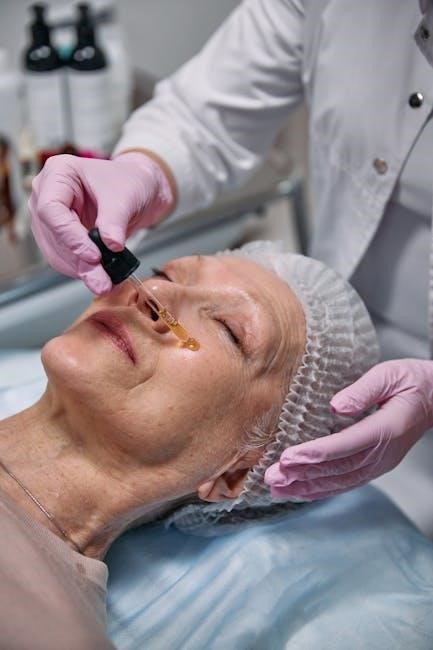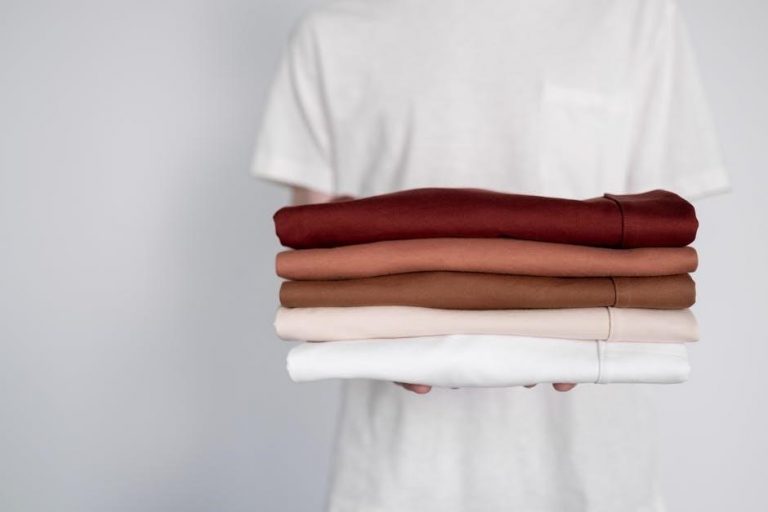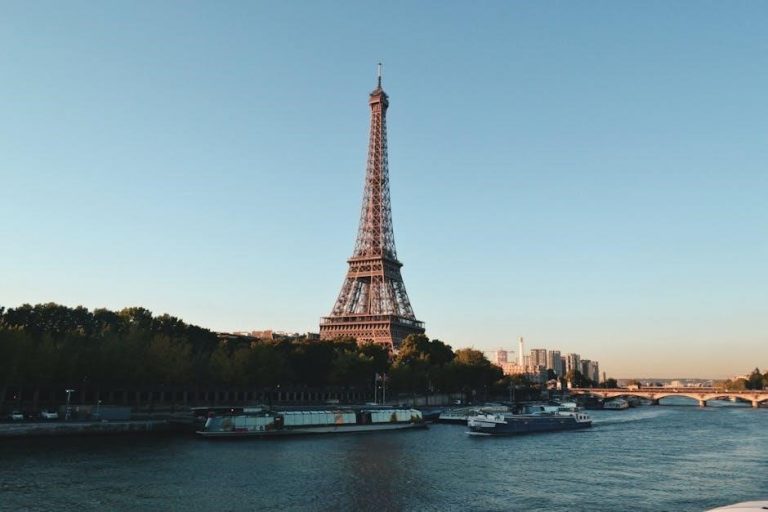Black hair holds profound historical and cultural significance‚ reflecting identity‚ resilience‚ and creativity. Its origins trace back to African traditions‚ symbolizing spiritual and social meanings. Over time‚ it evolved into a powerful symbol of resistance and self-expression‚ shaping beauty standards and cultural identity within African American communities.
1.1 The Origins of Black Hair Culture
Black hair culture traces its roots to ancient African traditions‚ where hairstyles carried profound symbolic meaning. Braids and cornrows signified tribal affiliation‚ spiritual identity‚ and social status. These practices were deeply intertwined with cultural and religious rituals‚ reflecting a rich heritage. The transatlantic slave trade forcibly brought these traditions to the Americas‚ where they evolved‚ blending resilience with creativity‚ and became a cornerstone of African diasporic identity.
1.2 Historical Context of Black Hair in America
Black hair in America carries a complex history shaped by slavery‚ segregation‚ and cultural erasure. Forced assimilation led to practices like the “conk‚” a hairstyle symbolizing conformity to white standards. Malcolm X’s narrative highlights this struggle‚ as Black hair became a battleground for identity and acceptance. Historical neglect in beauty standards marginalized Black features‚ yet resilience and cultural pride transformed hair into a symbol of resistance and empowerment.
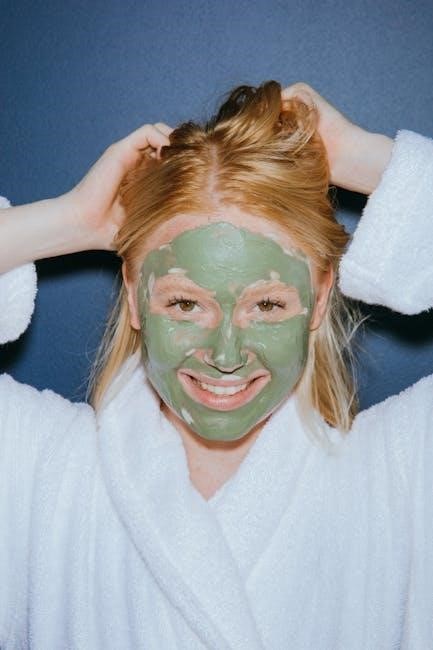
The Politicization of Black Hair
Black hair has become a powerful political symbol‚ reflecting identity‚ resistance‚ and cultural pride. Its politicization stems from historical struggles‚ making it a focal point for social change.
2.1 Social Meanings and Cultural Identity
Black hair carries deep social meanings‚ serving as a source of cultural identity and community bonding. Hairstyles like braids and cornrows symbolize African heritage and resilience‚ while natural hair embodies pride and resistance. These styles reflect the historical journey of African Americans‚ transitioning from forced assimilation to embracing their unique beauty and identity.
2.2 Hair as a Symbol of Resistance and Empowerment
Black hair has long been a symbol of resistance and empowerment‚ challenging societal norms and racism. The natural hair movement rejected assimilation‚ embracing African heritage. Hairstyles like Afros and dreadlocks became powerful statements of Black pride‚ while figures like Malcolm X and the Black Panthers used their hair to signify rebellion and solidarity‚ transforming it into a potent tool for social change and identity affirmation.
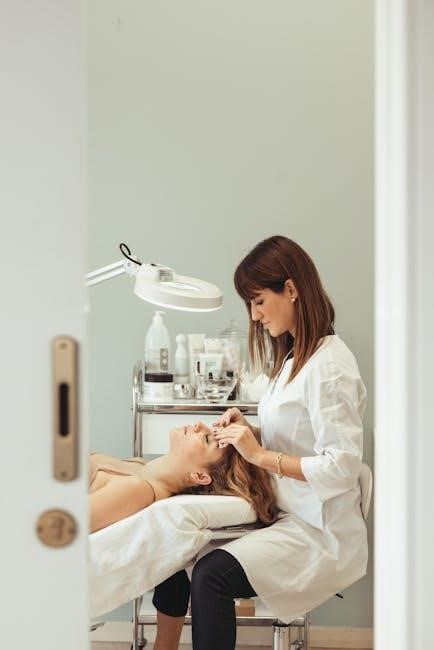
The Black is Beautiful Movement
The movement celebrated African heritage‚ transforming beauty standards and fostering pride in natural hairstyles‚ empowering Black communities to embrace their identity and challenge societal norms.
3.1 Transformation of Beauty Standards
The Black is Beautiful movement revolutionized perceptions of beauty‚ challenging Eurocentric norms by celebrating natural hairstyles and darker skin tones; It empowered African Americans to embrace their unique features‚ fostering self-acceptance and cultural pride. This shift not only redefined beauty but also influenced media representation‚ encouraging inclusivity and diversity in the beauty industry.
3.2 Impact on Black Communities and Identity
The Black is Beautiful movement deeply resonated within Black communities‚ fostering unity and pride. By promoting natural hairstyles and African aesthetics‚ it helped reclaim cultural identity and combat internalized racism. This empowerment extended beyond beauty‚ inspiring social and political activism‚ and reinforcing the importance of self-love and heritage within African American culture.
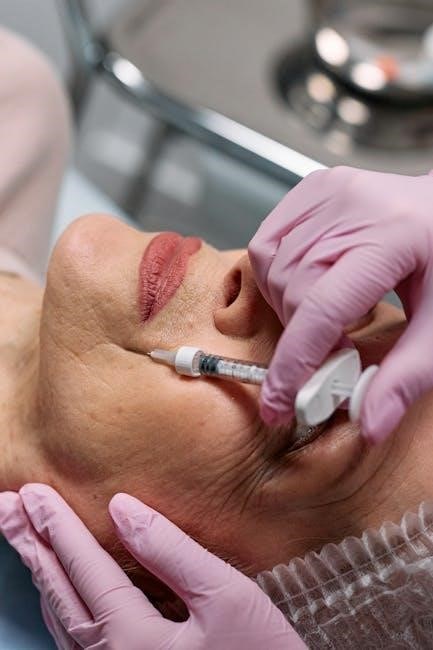
Traditional Hairstyles and Their Evolution
Traditional Black hairstyles‚ such as braids and cornrows‚ have deep cultural roots in African heritage. These styles evolved over centuries‚ adapting to societal changes while preserving identity and historical significance.
4.1 Braids‚ Cornrows‚ and Their Cultural Significance
Braids and cornrows are deeply rooted in African culture‚ serving as symbols of identity‚ spirituality‚ and community; Historically‚ these styles indicated marital status‚ wealth‚ and tribal affiliation. During the transatlantic slave trade‚ they became tools for resistance‚ hiding seeds and maps for escape. Today‚ they remain a celebration of heritage and resilience‚ embodying the enduring legacy of African traditions in Black beauty and identity.
4.2 The Rise of Afrocentric Hairstyles
Afrocentric hairstyles emerged as a powerful symbol of cultural pride and identity‚ deeply rooted in African heritage. The “Black is Beautiful” movement of the 1960s and 1970s championed natural hairstyles like Afros‚ dreadlocks‚ and twists‚ rejecting Eurocentric beauty standards. These styles became a celebration of Blackness‚ fostering unity and self-love. Their resurgence in modern times continues to inspire‚ reflecting a enduring commitment to African cultural expression and empowerment.
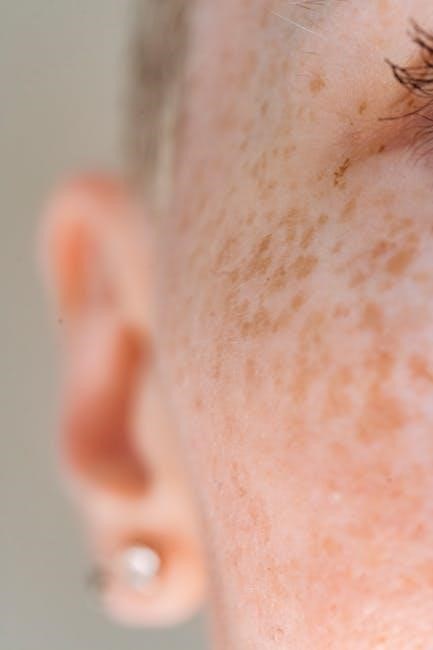
The Role of Cosmetology in the African American Community
Cosmetology plays a vital role in African American culture‚ fostering identity‚ entrepreneurship‚ and innovation. It empowers individuals‚ preserves heritage‚ and drives economic growth within the community.
5.1 The Emergence of Black-Owned Beauty Businesses
The emergence of Black-owned beauty businesses marked a significant milestone in African American history. Entrepreneurs like Madame C.J. Walker pioneered the industry‚ creating products tailored to Black hair care. These businesses not only empowered individuals but also fostered economic growth and community pride. They became symbols of resilience‚ challenging racial barriers and redefining beauty standards while preserving cultural heritage and promoting self-expression within the African American community.
5.2 Innovations in Black Hair Care Products
Innovations in Black hair care products have revolutionized the beauty industry‚ catering to diverse textures and needs. From natural ingredients to sulfate-free shampoos‚ these products emphasize hair health and versatility. Brands have developed curl enhancers‚ leave-in conditioners‚ and protective styling products‚ empowering individuals to embrace their natural beauty. These advancements reflect a growing demand for inclusive‚ culturally relevant solutions that celebrate African American hair traditions and promote self-care.
The Influence of Media and Marketing on Black Beauty
Media and marketing have historically shaped perceptions of Black beauty‚ often marginalizing natural textures. However‚ increased representation in advertising and campaigns has fostered inclusivity‚ celebrating diverse beauty standards and empowering Black communities to embrace their unique features and cultural identity.
6.1 Representation in Advertising and Media
Historically‚ Black beauty was often excluded from mainstream media‚ perpetuating Eurocentric standards. However‚ recent campaigns by brands like Fenty Beauty and others have embraced diversity‚ showcasing Black models with natural hair and darker skin tones. This shift has challenged stereotypes‚ fostering inclusivity and celebrating Black beauty in its entirety. Increased representation has empowered Black individuals‚ promoting self-acceptance and redefining global beauty ideals.
6.2 The Role of Celebrity Culture in Shaping Beauty Trends
Celebrities have played a pivotal role in shaping Black beauty trends‚ using their platforms to celebrate natural hair and diverse skin tones. Icons like Beyoncé and Lupita Nyong’o have normalized Afrocentric features‚ influencing millions. Their impact extends beyond entertainment‚ challenging traditional beauty standards and fostering inclusivity. Social media amplifies their reach‚ making them key figures in promoting Black beauty and empowering individuals to embrace their natural aesthetic.
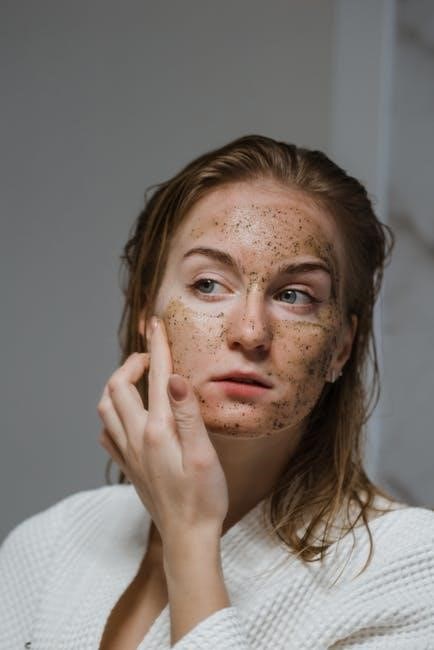
The Impact of Assimilation on Black Beauty Standards
Assimilation pressured Black individuals to conform to Eurocentric beauty norms‚ altering natural hair textures and styles. This reflected internalized racism and the struggle for societal acceptance historically.
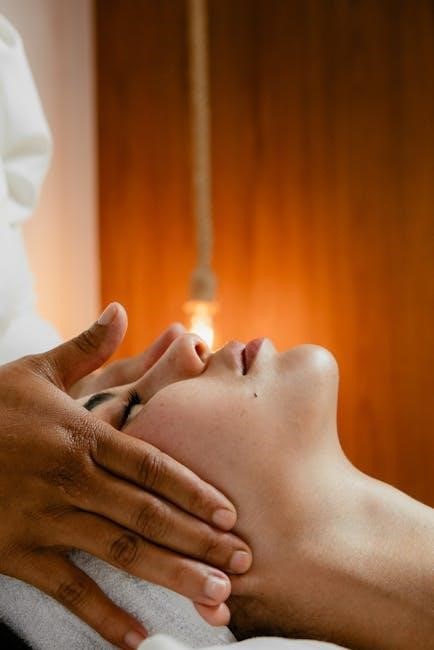
7.1 The Conk and Other Hairstyles as Symbols of Assimilation
The conk‚ a chemically straightened hairstyle popularized in the 1920s-1950s‚ symbolized assimilation into white beauty standards. It damaged hair but was seen as a way to blend into societal norms. Other styles‚ like slicked-back looks‚ also reflected this shift. These hairstyles represented internalized racism and the desire to conform‚ often at the cost of cultural identity and hair health‚ highlighting the broader struggle with racial acceptance during this era.
7.2 The Shift Toward Natural Hair Acceptance
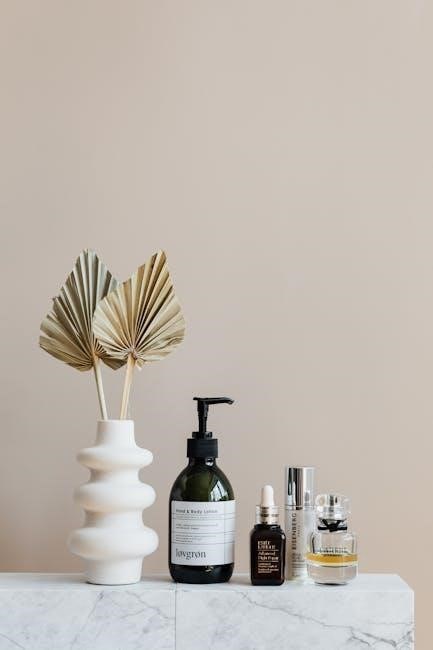
The shift toward natural hair acceptance emerged as a rejection of Eurocentric beauty standards‚ embracing African heritage. The Black is Beautiful movement played a crucial role‚ promoting pride in natural textures. This cultural shift symbolized empowerment‚ challenging historical oppression and fostering self-acceptance. Natural hair became a symbol of identity‚ resilience‚ and liberation‚ reflecting a deeper connection to African roots and rejecting assimilationist ideals rooted in racism and exclusion.

Modern Trends in Black Cosmetology
Modern trends emphasize natural hair care‚ diversity‚ and inclusivity‚ with a rise in protective styles and eco-friendly products. Social media influences beauty standards‚ celebrating African textures and promoting Black-owned businesses‚ fostering innovation and community empowerment in cosmetology.
8.1 The Resurgence of Natural Hair Movements
The natural hair movement has regained momentum‚ celebrating African textures and promoting self-acceptance. It empowers individuals to embrace their heritage‚ rejecting Eurocentric beauty standards. Social media and digital communities play a crucial role in spreading awareness‚ fostering pride‚ and driving innovation in hair care. This resurgence has also sparked demand for diverse products‚ encouraging the growth of Black-owned businesses and redefining beauty standards globally.
8.2 The Influence of Social Media on Beauty Trends
Social media platforms have become a powerful force in shaping Black beauty trends. Influencers and celebrities showcase diverse hairstyles‚ from afros to braids‚ inspiring millions. These platforms democratize beauty‚ allowing individuals to share their experiences and connect globally. Hashtags like #NaturalHair and #BlackBeauty amplify cultural pride‚ driving the demand for inclusive products and fostering a sense of community among Black consumers worldwide.
The Role of Education and Training in Black Cosmetology
Education and training are vital in Black cosmetology‚ ensuring specialized hair care expertise and preserving cultural heritage. Schools and programs cater to African American beauty needs‚ fostering innovation and community growth.
9.1 The Importance of Specialized Hair Care Education
Specialized hair care education is crucial for understanding the unique needs of Black hair textures and styles. It fosters cultural competence and technical expertise‚ ensuring proper care and styling techniques. such education preserves heritage and addresses specific hair challenges‚ empowering professionals to cater to diverse beauty needs.
Curricula often include modules on natural hair‚ braiding‚ and chemical treatments‚ equipping students with comprehensive skills. This training not only enhances career opportunities but also strengthens community ties and pride in African American beauty traditions.
9.2 The Growth of Cosmetology Schools for African Americans
The growth of cosmetology schools catering to African Americans has surged‚ emphasizing specialized training in Black hair care. These institutions preserve cultural heritage while innovating modern techniques. They provide tailored education‚ addressing the unique needs of African textures and styles. This expansion reflects the increasing demand for skilled professionals and the recognition of Black beauty standards in the broader beauty industry.
Black cosmetology continues to evolve‚ blending cultural preservation with innovation. The future promises growth‚ inclusivity‚ and celebration of African beauty‚ driving global beauty standards forward.
10.1 The Evolution of Black Beauty Standards
Black beauty standards have transformed significantly‚ shifting from imposed Eurocentric ideals to celebrating natural beauty. The embrace of African textures and diverse styles reflects empowerment and cultural pride‚ marking a progressive journey toward self-acceptance and inclusivity in the beauty industry.
10.2 The Future of Black Hair Care and Cosmetology
The future of Black hair care and cosmetology is poised for innovation‚ with a focus on sustainability and inclusivity. Advances in technology and product development will cater to diverse textures‚ promoting healthier hair practices. Virtual try-ons and personalized recommendations will dominate‚ while education and cultural preservation ensure the legacy of Black beauty endures‚ empowering future generations to embrace their unique heritage with pride and confidence.
